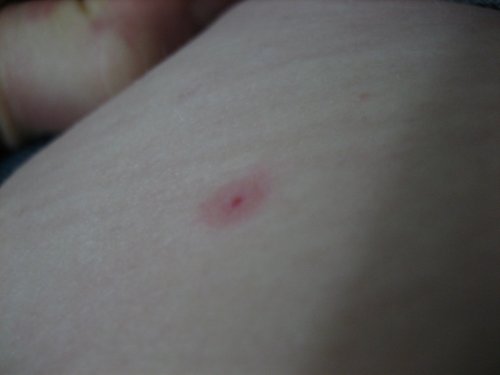Most people view fleas as nothing more than a minor nuissance that pose no direct threat to their health. When a flea bites you, it typically leaves a small, itchy red bump that goes away within a few days. In some cases, though, flea bites can transmit disease while leaving the host susceptible to other related illnesses. This week we’re going to take a closer look at the health hazards posed by these all-too-common parasites.
Infection
The first health hazard of fleas that we’re going to discuss is the possibility for infection. Each time a flea bites into your skin, it creates a small but open wound where bacteria may enter. Granted, the entry point is small, but it’s still large enough for foreign invaders to enter your body and wreck havoc on your health.
To reduce the risk of infection, try to avoid scratching your flea bites. Although it may initially relieve some of the itching, scratching may open the wound so it’s larger and more prone to infection. You can also apply an antibiotic ointment to ward off infection-causing bacteria.
Vector-Borne Disease
Of course, another health hazard posed by fleas is the possibility for vector-borne disease. The term “vector-borne” refers to any disease that’s transmitted through insects, including fleas.
Some of the different vector-borne diseases transmitted by fleas include the following:
- Yersinia pestis
- Rickettsia typhi
- Rickettsia felis
- Bartonella henselae
- Myxomatosis
- Hymenolepiasis tapeworm
- Trypanosome protozoans
- Typhus
- Bubonic plague
Allergic Reaction
A third type of health hazard associated with fleas that’s worth noting is allergic reactions. Some people will experience nothing more than a small red bump after being bitten by a flea. Others, however, will develop large red and inflamed patches of skin that itch profusely. This condition, known as Flea Allergy Dermatitis (FAD) is characterized by an intense autoimmune response in which the immune system views the flea saliva as a foreign invader. As a result, the body’s immune system attacks the origin of the bite, triggering a range of unpleasant side effects.
There are some steps you can take to minimize the effect of FAD, such as applying a hydrocortisone ointment on the flea bite. This, combined with the use of a non-steroidal anti-inflammatory drug (NSAID) can make a world of difference in the pain and discomfort associated with flea bites.
Have you experienced any adverse reactions to flea bites? Let us know in the comments section below!

